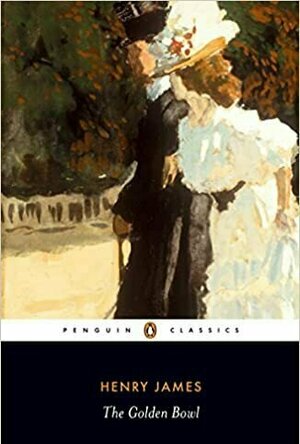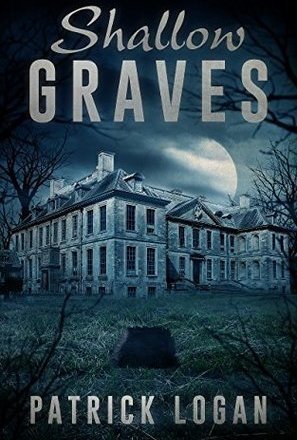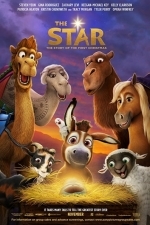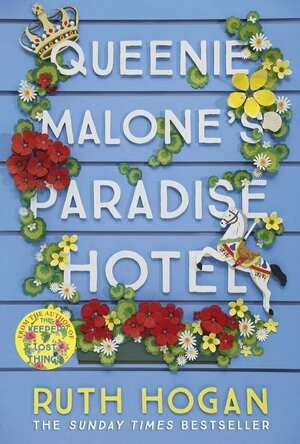Search
Search results
Hazel (1853 KP) rated Small Great Things in Books
May 24, 2017
Small is an Understatement
Jodi Picoult has been my favourite author since I first came across her novels in 2008. With twenty-three novels under her belt, she continues to delight readers with her page-turning stories. Most of Picoult’s books contain a moral issue, often, but not always, in the form of medical ethics, as well as a hefty court case. Although following along similar lines, Small Great Things is a radical, revolutionary book, which, with great courage, Picoult has written with the intent to expose the reader to truths that most of us, as a society, are intentionally oblivious to.
The gist of the storyline is that a baby dies whilst under the care of a nurse, prompting the grieving parents to take her to court with the accusation of murder. Although that sounds like an interesting story, it barely begins to describe what the book is about. The character on trial, Ruth, is an African American labour and delivery nurse – something that in this day and age need not by an issue. On the other hand, the parents of the baby are White Supremacists: seriously racist with the belief that white people are the master race. The father, Turk, refuses to let his wife and child be treated by Ruth, however circumstances result in her being the only nurse available to watch Davis, when, unfortunately, he so happens to go into cardiac arrest. Although the reader knows that Ruth is not at fault, Turk insists she murdered his child – but is he accusing her of medical negligence, or punishing her for being black?
Three characters, all with different views and experience when it comes to racism, alternately narrate Small Great Things. Ruth and Turk represent the extremes at either side of the scale. Ruth experiences first hand the negative impact of prejudice in the American system and society, not only through this court case, but in everyday life as well. She also reveals the difficulties growing up in a predominately white environment, never feeling like she fitted in with her peers. Alternatively, Turk spent his teenage years attending KKK rallies, participating in a white power movement, and beating up anyone who was different: black, foreign, gay, Jewish and so forth.
The third character represents the majority of white people living in America. Kennedy is a public defender and the lawyer assigned to Ruth’s case. Like most of the population, she believes that she is not racist, and persuades Ruth to leave the colour of her skin out of the argument. However, as she gets to know her client, she begins to realize that it is nigh on impossible to ignore racial prejudice.
Picoult shocks the reader on two accounts: one, the way that people of colour have been, and still are, treated; and two, the revelation that an invisible empire of White Supremacists are living amongst us. Yet there is a third way in which Picoult provokes outrage – she indirectly accuses the reader of being racist, too.
There is always something to learn in a Jodi Picoult novel, for instance medical terminology, or the way in which a court trial is conducted. Small Great Things provides a lot more eye opening information than any of her previous books, unveiling facts about such a controversial subject.
Through Kennedy, the reader’s eyes are opened to the racial discrimination that we all turn a blind eye to. Ignored are the difficulties African Americans suffer when going shopping, applying for jobs, attending school, walking down the street, sitting on a bus, and so forth. Picoult asks me as a reader to think about how my life has been affected by racial discrimination: being served politely in shops because I am white, not having my ethnicity questioned when applying for college etc. Living in Britain I have not experienced openly hateful comments or behaviours towards people with a different skin tone – I used to believe this was primarily an American problem. Yet, Small Great Things has really made me think about the hierarchy of power within society, particularly in regards to the ethnicity of those at the top, compared with those at the bottom.
Jodi Picoult sat on the idea of writing a book about racism for well over a decade, yet it is particularly apt that it is published now, with the current predicaments America is facing. Although we have come a long way in attempts to achieve equality for all – compare the trial in To Kill A Mockingbird to Picoult’s version – recent events have revealed that we are no where near.
Small Great Things will shock everyone who reads it regardless of their ethnicity and so forth. Many may find it uncomfortable to read, become upset or outraged, and even feel like they are being directly targeted. If this is the case, then good – it should do that. Everyone needs to read this book. On the one hand it is a brilliant, well told story with a beautiful, almost poetic narrative, and on the other, it causes us to face up to the issues we are forever making light of or overlooking entirely. We have grown up believing that racism is a form of hatred when, actually, it is about power. However Small Great Things makes you feel, it is definitely worth reading, especially for the satisfying ending – one that you do not see coming.
The gist of the storyline is that a baby dies whilst under the care of a nurse, prompting the grieving parents to take her to court with the accusation of murder. Although that sounds like an interesting story, it barely begins to describe what the book is about. The character on trial, Ruth, is an African American labour and delivery nurse – something that in this day and age need not by an issue. On the other hand, the parents of the baby are White Supremacists: seriously racist with the belief that white people are the master race. The father, Turk, refuses to let his wife and child be treated by Ruth, however circumstances result in her being the only nurse available to watch Davis, when, unfortunately, he so happens to go into cardiac arrest. Although the reader knows that Ruth is not at fault, Turk insists she murdered his child – but is he accusing her of medical negligence, or punishing her for being black?
Three characters, all with different views and experience when it comes to racism, alternately narrate Small Great Things. Ruth and Turk represent the extremes at either side of the scale. Ruth experiences first hand the negative impact of prejudice in the American system and society, not only through this court case, but in everyday life as well. She also reveals the difficulties growing up in a predominately white environment, never feeling like she fitted in with her peers. Alternatively, Turk spent his teenage years attending KKK rallies, participating in a white power movement, and beating up anyone who was different: black, foreign, gay, Jewish and so forth.
The third character represents the majority of white people living in America. Kennedy is a public defender and the lawyer assigned to Ruth’s case. Like most of the population, she believes that she is not racist, and persuades Ruth to leave the colour of her skin out of the argument. However, as she gets to know her client, she begins to realize that it is nigh on impossible to ignore racial prejudice.
Picoult shocks the reader on two accounts: one, the way that people of colour have been, and still are, treated; and two, the revelation that an invisible empire of White Supremacists are living amongst us. Yet there is a third way in which Picoult provokes outrage – she indirectly accuses the reader of being racist, too.
There is always something to learn in a Jodi Picoult novel, for instance medical terminology, or the way in which a court trial is conducted. Small Great Things provides a lot more eye opening information than any of her previous books, unveiling facts about such a controversial subject.
Through Kennedy, the reader’s eyes are opened to the racial discrimination that we all turn a blind eye to. Ignored are the difficulties African Americans suffer when going shopping, applying for jobs, attending school, walking down the street, sitting on a bus, and so forth. Picoult asks me as a reader to think about how my life has been affected by racial discrimination: being served politely in shops because I am white, not having my ethnicity questioned when applying for college etc. Living in Britain I have not experienced openly hateful comments or behaviours towards people with a different skin tone – I used to believe this was primarily an American problem. Yet, Small Great Things has really made me think about the hierarchy of power within society, particularly in regards to the ethnicity of those at the top, compared with those at the bottom.
Jodi Picoult sat on the idea of writing a book about racism for well over a decade, yet it is particularly apt that it is published now, with the current predicaments America is facing. Although we have come a long way in attempts to achieve equality for all – compare the trial in To Kill A Mockingbird to Picoult’s version – recent events have revealed that we are no where near.
Small Great Things will shock everyone who reads it regardless of their ethnicity and so forth. Many may find it uncomfortable to read, become upset or outraged, and even feel like they are being directly targeted. If this is the case, then good – it should do that. Everyone needs to read this book. On the one hand it is a brilliant, well told story with a beautiful, almost poetic narrative, and on the other, it causes us to face up to the issues we are forever making light of or overlooking entirely. We have grown up believing that racism is a form of hatred when, actually, it is about power. However Small Great Things makes you feel, it is definitely worth reading, especially for the satisfying ending – one that you do not see coming.
Hazel (1853 KP) rated Small Great Things in Books
Dec 7, 2018
Jodi Picoult has been my favourite author since I first came across her novels in 2008. With twenty-three novels under her belt, she continues to delight readers with her page-turning stories. Most of Picoult’s books contain a moral issue, often, but not always, in the form of medical ethics, as well as a hefty court case. Although following along similar lines, <i>Small Great Thing</i>s is a radical, revolutionary book, which, with great courage, Picoult has written with the intent to expose the reader to truths that most of us, as a society, are <s>intentionally</s> oblivious to.
The gist of the storyline is that a baby dies whilst under the care of a nurse, prompting the grieving parents to take her to court with the accusation of murder. Although that sounds like an interesting story, it barely begins to describe what the book is about. The character on trial, Ruth, is an African American labour and delivery nurse – something that in this day and age need not by an issue. On the other hand, the parents of the baby are White Supremacists: seriously racist with the belief that white people are the master race. The father, Turk, refuses to let his wife and child be treated by Ruth, however circumstances result in her being the only nurse available to watch Davis, when, unfortunately, he so happens to go into cardiac arrest. Although the reader knows that Ruth is not at fault, Turk insists she murdered his child – but is he accusing her of medical negligence, or punishing her for being black?
Three characters, all with different views and experience when it comes to racism, alternately narrate<i> Small Great Things</i>. Ruth and Turk represent the extremes at either side of the scale. Ruth experiences first hand the negative impact of prejudice in the American system and society, not only through this court case, but in everyday life as well. She also reveals the difficulties growing up in a predominately white environment, never feeling like she fitted in with her peers. Alternatively, Turk spent his teenage years attending KKK rallies, participating in a white power movement, and beating up anyone who was different: black, foreign, gay, Jewish and so forth.
The third character represents the majority of white people living in America. Kennedy is a public defender and the lawyer assigned to Ruth’s case. Like most of the population, she believes that she is not racist, and persuades Ruth to leave the colour of her skin out of the argument. However, as she gets to know her client, she begins to realize that it is nigh on impossible to ignore racial prejudice.
Picoult shocks the reader on two accounts: one, the way that people of colour have been, and still are, treated; and two, the revelation that an invisible empire of White Supremacists are living amongst us. Yet there is a third way in which Picoult provokes outrage – she indirectly accuses the reader of being racist, too.
There is always something to learn in a Jodi Picoult novel, for instance medical terminology, or the way in which a court trial is conducted. <i>Small Great Things</i> provides a lot more eye opening information than any of her previous books, unveiling facts about such a controversial subject.
Through Kennedy, the reader’s eyes are opened to the racial discrimination that we all turn a blind eye to. Ignored are the difficulties African Americans suffer when going shopping, applying for jobs, attending school, walking down the street, sitting on a bus, and so forth. Picoult asks me as a reader to think about how my life has been affected by racial discrimination: being served politely in shops because I am white, not having my ethnicity questioned when applying for college etc. Living in Britain I have not experienced openly hateful comments or behaviours towards people with a different skin tone – I used to believe this was primarily an American problem. Yet, <i>Small Great Things</i> has really made me think about the hierarchy of power within society, particularly in regards to the ethnicity of those at the top, compared with those at the bottom.
Jodi Picoult sat on the idea of writing a book about racism for well over a decade, yet it is particularly apt that it is published now, with the current predicaments America is facing. Although we have come a long way in attempts to achieve equality for all – compare the trial in <i>To Kill A Mockingbird</i> to Picoult’s version – recent events have revealed that we are no where near.
<i>Small Great Things</i> will shock everyone who reads it regardless of their ethnicity and so forth. Many may find it uncomfortable to read, become upset or outraged, and even feel like they are being directly targeted. If this is the case, then good – it should do that. Everyone needs to read this book. On the one hand it is a brilliant, well told story with a beautiful, almost poetic narrative, and on the other, it causes us to face up to the issues we are forever making light of or overlooking entirely. We have grown up believing that racism is a form of hatred when, actually, it is about power. However <i>Small Great Things </i>makes you feel, it is definitely worth reading, especially for the satisfying ending – one that you do not see coming.
The gist of the storyline is that a baby dies whilst under the care of a nurse, prompting the grieving parents to take her to court with the accusation of murder. Although that sounds like an interesting story, it barely begins to describe what the book is about. The character on trial, Ruth, is an African American labour and delivery nurse – something that in this day and age need not by an issue. On the other hand, the parents of the baby are White Supremacists: seriously racist with the belief that white people are the master race. The father, Turk, refuses to let his wife and child be treated by Ruth, however circumstances result in her being the only nurse available to watch Davis, when, unfortunately, he so happens to go into cardiac arrest. Although the reader knows that Ruth is not at fault, Turk insists she murdered his child – but is he accusing her of medical negligence, or punishing her for being black?
Three characters, all with different views and experience when it comes to racism, alternately narrate<i> Small Great Things</i>. Ruth and Turk represent the extremes at either side of the scale. Ruth experiences first hand the negative impact of prejudice in the American system and society, not only through this court case, but in everyday life as well. She also reveals the difficulties growing up in a predominately white environment, never feeling like she fitted in with her peers. Alternatively, Turk spent his teenage years attending KKK rallies, participating in a white power movement, and beating up anyone who was different: black, foreign, gay, Jewish and so forth.
The third character represents the majority of white people living in America. Kennedy is a public defender and the lawyer assigned to Ruth’s case. Like most of the population, she believes that she is not racist, and persuades Ruth to leave the colour of her skin out of the argument. However, as she gets to know her client, she begins to realize that it is nigh on impossible to ignore racial prejudice.
Picoult shocks the reader on two accounts: one, the way that people of colour have been, and still are, treated; and two, the revelation that an invisible empire of White Supremacists are living amongst us. Yet there is a third way in which Picoult provokes outrage – she indirectly accuses the reader of being racist, too.
There is always something to learn in a Jodi Picoult novel, for instance medical terminology, or the way in which a court trial is conducted. <i>Small Great Things</i> provides a lot more eye opening information than any of her previous books, unveiling facts about such a controversial subject.
Through Kennedy, the reader’s eyes are opened to the racial discrimination that we all turn a blind eye to. Ignored are the difficulties African Americans suffer when going shopping, applying for jobs, attending school, walking down the street, sitting on a bus, and so forth. Picoult asks me as a reader to think about how my life has been affected by racial discrimination: being served politely in shops because I am white, not having my ethnicity questioned when applying for college etc. Living in Britain I have not experienced openly hateful comments or behaviours towards people with a different skin tone – I used to believe this was primarily an American problem. Yet, <i>Small Great Things</i> has really made me think about the hierarchy of power within society, particularly in regards to the ethnicity of those at the top, compared with those at the bottom.
Jodi Picoult sat on the idea of writing a book about racism for well over a decade, yet it is particularly apt that it is published now, with the current predicaments America is facing. Although we have come a long way in attempts to achieve equality for all – compare the trial in <i>To Kill A Mockingbird</i> to Picoult’s version – recent events have revealed that we are no where near.
<i>Small Great Things</i> will shock everyone who reads it regardless of their ethnicity and so forth. Many may find it uncomfortable to read, become upset or outraged, and even feel like they are being directly targeted. If this is the case, then good – it should do that. Everyone needs to read this book. On the one hand it is a brilliant, well told story with a beautiful, almost poetic narrative, and on the other, it causes us to face up to the issues we are forever making light of or overlooking entirely. We have grown up believing that racism is a form of hatred when, actually, it is about power. However <i>Small Great Things </i>makes you feel, it is definitely worth reading, especially for the satisfying ending – one that you do not see coming.
Phil Leader (619 KP) rated Letters to the Pianist in Books
Nov 19, 2019
War is hell. Sometimes that hell can be a little closer to home.
14 year old Ruth Goldberg lives with her family in the East End of London during the Second World War with her parents and younger sister and brother. Her life isn't perfect by any means but at least she has her family. When their house takes a direct hit from a German bomb, the children are orphaned and cast adrift to live with strangers.
Meanwhile a man is found in the rubble following the bombing, suffering from total amnesia, who is given the name Edward because cannot even remember his own. He does discover that he is an enormously skilled pianist and soon becomes famous and also rich after marrying the daughter of a well-connected aristocrat millionaire.
The story follows Ruth, her siblings and Edward through the war years and beyond as that one bombing raid changed all their lives forever. Some will find their new lives hold unexpected - even deadly - dangers and all will come to know love and friendship as well as loss and betrayal.
Mayes writes this novel with confidence, moving smoothly between the story lines as they unfold and intertwine. She makes the reader really feel the emotions the characters are going through, good or bad. Edward's story is particularly effective as his previous life slowly starts to come to light and the man he was isn't the person either those around him or Edward himself is comfortable with.
As with her previous book, Stop The World, although very different in subject matter this story is just as deeply affecting and once again I'm sure it will stay with me for some time.
14 year old Ruth Goldberg lives with her family in the East End of London during the Second World War with her parents and younger sister and brother. Her life isn't perfect by any means but at least she has her family. When their house takes a direct hit from a German bomb, the children are orphaned and cast adrift to live with strangers.
Meanwhile a man is found in the rubble following the bombing, suffering from total amnesia, who is given the name Edward because cannot even remember his own. He does discover that he is an enormously skilled pianist and soon becomes famous and also rich after marrying the daughter of a well-connected aristocrat millionaire.
The story follows Ruth, her siblings and Edward through the war years and beyond as that one bombing raid changed all their lives forever. Some will find their new lives hold unexpected - even deadly - dangers and all will come to know love and friendship as well as loss and betrayal.
Mayes writes this novel with confidence, moving smoothly between the story lines as they unfold and intertwine. She makes the reader really feel the emotions the characters are going through, good or bad. Edward's story is particularly effective as his previous life slowly starts to come to light and the man he was isn't the person either those around him or Edward himself is comfortable with.
As with her previous book, Stop The World, although very different in subject matter this story is just as deeply affecting and once again I'm sure it will stay with me for some time.
ClareR (6067 KP) rated Queenie Malone's Paradise Hotel in Books
May 9, 2021
Queenie Malone’s Paradise Hotel is only the second book by Ruth Hogan that I’ve read (The Wisdom of Sally Red Shoes was the first), and I had only read the first 20% of this book when I pre-ordered her latest book Madame Burova. That’s how much I loved this book.
This story is told from two points of view: 6 year old Tilly and 46 year old Tilda. We see Tilly in flashbacks as Tilda goes to her late mothers seaside home to clear out her belongings.
Tilly had been an outgoing, happy child, who adored her Daddy. But one day he leaves the house and doesn’t return. Her Mummy tells her that he’s dead. Tilly doesn’t really seem to understand the concept of ‘dead’. Indeed, Tilly doesn’t seem to understand that there are people she sees that others don’t seem to notice - dead people (this isn’t a huge theme in this book , so if you don’t like reading about the supernatural, it doesn’t dominate. But I like the supernatural, so 🤷🏼♀️). This is such a lovely story filled with very likeable people, such as the flamboyant Queenie Malone and her mother, who has a different Hollywood starlet name according to the day of the week.
In the present day, Tilda starts to work through her feelings of resentment towards her mother: the way that she felt abandoned when went to boarding school, in particular.
Tilda is a very solitary figure - a polar opposite to her childhood self, in fact. When she finds her mothers diaries and starts to read them, there are many revelations that explain her mothers motivations - some of them very sad.
This is another wonderful book from Ruth Hogan, and I wouldn’t hesitate to recommend it (I bought a copy for my mum as soon as I finished it, in fact!).
This story is told from two points of view: 6 year old Tilly and 46 year old Tilda. We see Tilly in flashbacks as Tilda goes to her late mothers seaside home to clear out her belongings.
Tilly had been an outgoing, happy child, who adored her Daddy. But one day he leaves the house and doesn’t return. Her Mummy tells her that he’s dead. Tilly doesn’t really seem to understand the concept of ‘dead’. Indeed, Tilly doesn’t seem to understand that there are people she sees that others don’t seem to notice - dead people (this isn’t a huge theme in this book , so if you don’t like reading about the supernatural, it doesn’t dominate. But I like the supernatural, so 🤷🏼♀️). This is such a lovely story filled with very likeable people, such as the flamboyant Queenie Malone and her mother, who has a different Hollywood starlet name according to the day of the week.
In the present day, Tilda starts to work through her feelings of resentment towards her mother: the way that she felt abandoned when went to boarding school, in particular.
Tilda is a very solitary figure - a polar opposite to her childhood self, in fact. When she finds her mothers diaries and starts to read them, there are many revelations that explain her mothers motivations - some of them very sad.
This is another wonderful book from Ruth Hogan, and I wouldn’t hesitate to recommend it (I bought a copy for my mum as soon as I finished it, in fact!).

The Golden Bowl
Book
Henry James's highly charged study of adultery, jealousy and possession, The Golden Bowl is edited...

Shallow Graves (The Haunted #1)
Book
Not all houses are made of brick and stone... Robert Watts is having the worst day of his entire...
Horror occult
CKD (37 KP) rated Small Great Things in Books
Dec 7, 2018
Wow. A very controversial topic that was tackled very well. This story is about Ruth Jefferson, a labor & delivery nurse at a hospital where she's worked for 20 years. One day at work, there is an incident that leaves her having to make a difficult decision and then the consequences afterward due to her decision. At the high level, this book is about racism. Jodi Picoult is known for conducting her own research and almost immersing herself in that research so that she can learn everything she can learn about the particular topic she's writing about. Her approach to this book is no different. She even wrote, in her "Author's Note" at the end of the book that in writing this book, it forced her to take a hard look at herself. I could not put this book down.
gayga (2128 KP) rated Small Great Things in Books
Jan 9, 2020
Another corker from Jodi
I was almost not looking forward to reading this book as normally Jodi Picoults books put me through the emotional wringer. However, this one left me (mostly) dry eyed. Don’t get me wrong, I love a blub more than most people but it’s nice to occasionally finish one of her books without being covered in tears and snot!
Despite this, it is an awesome book. I’m not going to divulge the story but it’s basically about racism and people’s perceived attitudes to it. The 3 points of view are Ruth Jefferson, a black nurse. Turk Bauer, a white supremacist and Kennedy McQuarrie, a lawyer.
It’s well thought out and you can really get under the skin of the character. A really good read, one I would probably read more than once.
Despite this, it is an awesome book. I’m not going to divulge the story but it’s basically about racism and people’s perceived attitudes to it. The 3 points of view are Ruth Jefferson, a black nurse. Turk Bauer, a white supremacist and Kennedy McQuarrie, a lawyer.
It’s well thought out and you can really get under the skin of the character. A really good read, one I would probably read more than once.




